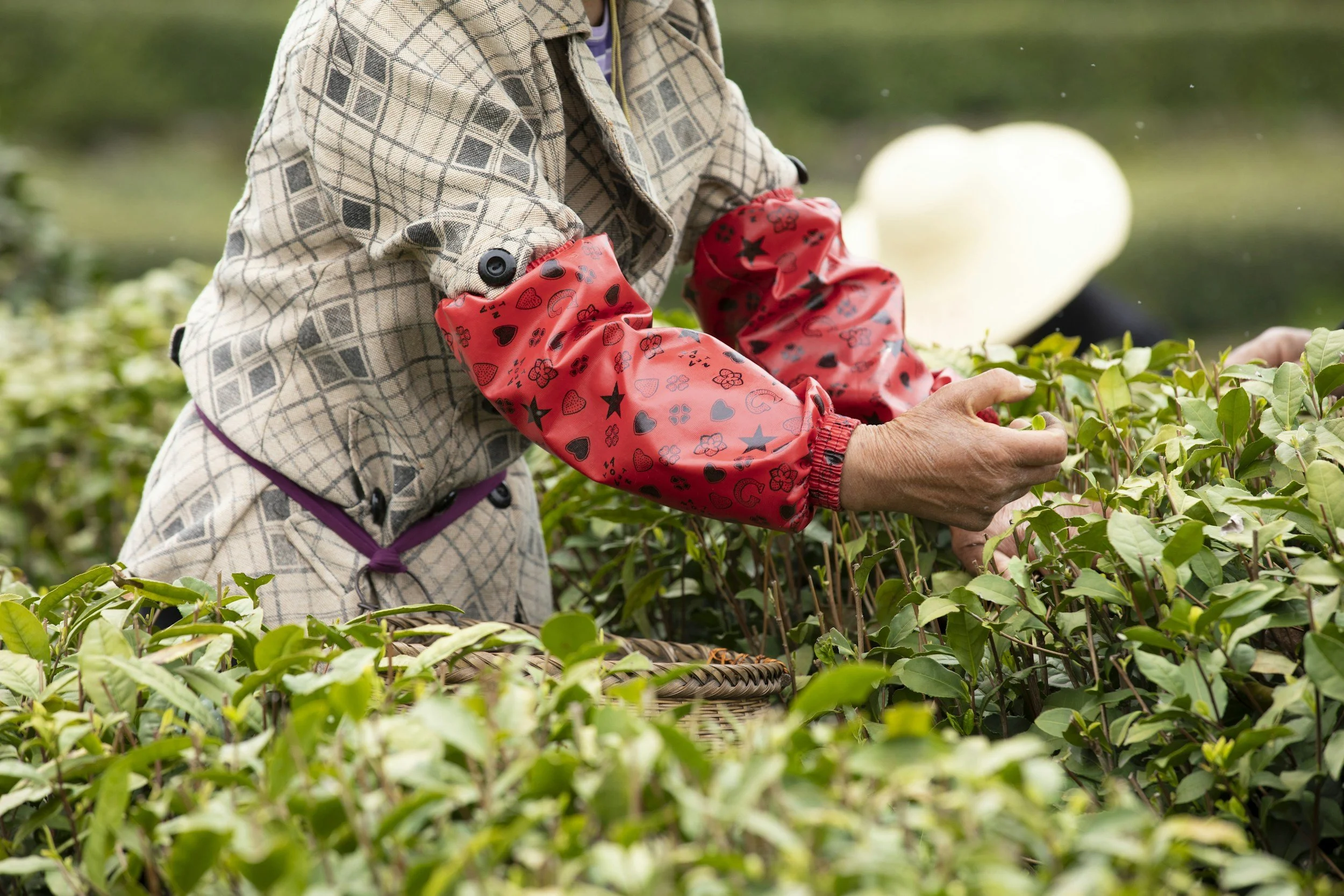When it Comes to Sustainability Does Lipton Tea “Change Everything”?
For generations, a cup of tea has been a simple, comforting ritual. I remember my grandmother making sweet tea with bags of Lipton. But did you know Lipton also includes brands like Tazo and Pukka?
But for Lipton Teas and Infusions, the world's largest tea business, that simple cup is part of a complex supply chain that depends on healthy soil, clean water, and thriving communities. That’s why we took a look at their 2024 Sustainability Report.
Uplifting People—The Social Brew
The social impact of the tea industry is huge, touching the lives of an estimated one million farmers in Lipton’s global network. For Lipton Teas and Infusions, unlocking the true value of tea starts with ensuring fair and respectful work for everyone along their supply chain.
Pioneering the Living Wage Movement
One of the most important yet challenging goals in any global supply chain is ensuring a living wage—the income necessary for workers to meet their basic needs and have a decent standard of living.
In 2024, Lipton was a leading player in the industry’s first-ever joint pilot aimed at reducing living wage gaps for tea workers.
Lipton teamed up with other global brands and producers to see if they could collectively close the gap between what workers are paid and what they need to live comfortably.
This initial collaboration proved effective, resulting in an additional cash-based bonus for almost 2,100 households. This pilot wasn't just about charity; it was about proving that collaboration can drive significant, positive social change and providing valuable lessons for future expansion.
The ultimate goal is for the cost of a living wage to be naturally included in the on-shelf price of tea—a system-wide change that will take time.
Reinvestment in East Africa
A major, historic development in 2024 was the sale of Lipton's East African tea estates to Browns Investments. While these estates only provided 15% of the tea Lipton sourced, this move fundamentally changed the company, allowing it to focus entirely on buying and selling the best botanical ingredients from around the world.
Instead of simply walking away, the sale became a tool for industry transformation and reinvestment. The most powerful element of this transaction is the commitment to put the net proceeds back into the region for the benefit of the entire tea ecosystem.
Lipton established the non-profit Africa Tea Industry Progress (ATIP) Foundation in early 2025, with proceeds directed into three key areas:
Skills Development and Training: Expanding education through the Lipton Tea Innovation & Technology Academy in Kenya. This academy helps people gain the knowledge to improve the quality of their tea and diversify their sources of income.
Climate Change Mitigation: Funding research and development for a self-sustaining ecosystem for lower-impact fertilizers.
Investing in Higher Standards: Promoting quality, social, and environmental standards to create distinction and value in the market.
A community welfare trust endowed with one billion Kenyan shillings will support sustainable development initiatives in the areas surrounding the former estates.
Advocacy and Health
Lipton also championed the health benefits of tea for consumers. They continued their advocacy for the US Food and Drug Administration (FDA) to officially endorse unsweetened tea made from the Camellia sinensis plant as a healthy choice.
This is about securing major public recognition for the benefits of a drink they believe is the healthiest available. This dedicated focus on quality and consumer safety resulted in a significant achievement: zero product recalls in 2024.
Protecting the Planet
For a company that relies on agriculture, the health of the planet is not just an ideal—it's a requirement for survival. Lipton’s environmental strategy focuses on three material topics: Climate Change, Biodiversity, and Packaging & End-of-Life.
Validating Climate Ambition
When a company makes a climate promise, how do you know it's real? Lipton has its targets verified by the Science-Based Targets initiative (SBTi).
Achieving SBTi validation means that their net-zero targets—for both their own operations and their entire value chain—are aligned with the latest climate science. This is a major endorsement, signaling to the world that their commitment to Accelerating Climate Action is grounded in scientific reality, not just marketing.
Smarter Farming and Transportation
One of the biggest environmental challenges in agriculture is the use of fertilizers, particularly those containing nitrogen, which are necessary for tea plants but contribute to greenhouse gas emissions.
Lipton’s solution is a "long brew" strategy that focuses on research and innovation. They partnered with Cranfield University on a five-year project to support the transition to climate-smart fertilizers.
This involves adopting Good Agricultural Practices (GAP) informed by data, ensuring that fertilizer is added at the right time, in the right place, and at precisely the right amount needed. This data-driven precision is critical to minimizing environmental impact while maintaining quality.
Lipton tackled the emissions that comes from shipping their products across the globe by partnering with Emons, a transport network, to launch the first double-deck trailer lane from Germany to Poland. This innovative solution delivers a significant 35% CO2e reduction on that route, showing how efficiency and sustainability can go hand-in-hand.
Packaging with Confidence
Packaging is a highly visible area of environmental concern, especially the issue of microplastics—tiny plastic particles that can result from the breakdown of larger items. The landscape is changing, but many tea bags contain microplastics that you may be consuming.
Lipton took decisive action to address consumer concerns. Independent, world-class laboratory testing, using advanced methods like mass spectrometry, confirmed a definitive conclusion: there is no microplastic release from Lipton's teabags. This is a huge success that offers consumers peace of mind.
Despite this success, Lipton is still focused on eliminating any remaining petroleum-based materials used as binding agents in their teabags to further reduce their environmental footprint. This push for low-carbon solutions is now governed by new internal packaging gatekeeping meetings to ensure every material choice is made with sustainability in mind.
The Energy Gap
While Lipton has successfully reduced total GHG emissions in 2024 compared to 2023, the data highlights a major, ongoing challenge: 77% of their total energy consumption is still non-renewable.
While they are focused on extending the use of renewable electricity across their nine manufacturing sites, closing this energy gap is a monumental task that requires significant investment and continuous effort to meet their net-zero goals.
Governance and Transparency
A grand vision like "Unlocking the true value of tea" needs a solid foundation of principles and constant evaluation. Lipton's efforts are underpinned by robust governance and a commitment to transparency.
Building a Framework for Responsibility
Lipton embeds responsibility throughout its value chain using three key policies:
Responsible Sourcing Policy: This sets fundamental principles based on international standards, including commitments to the payment of fair wages, treating all workers with dignity, and a zero-tolerance policy for forced labor or child labor.
Business Partner Policy: Ensures that every company Lipton works with aligns with their commitment to social responsibility and human rights.
Sustainable Sourcing & Sustainable Agriculture Principles: Defines the criteria for responsibly sourcing agricultural materials, including protecting the health and safety of workers.
Their commitment to ethical conduct is high, with 93% of employees trained on the Code of Business Conduct, and zero confirmed corruption incidents or human rights cases in their own operations.
Accelerating Industry-Wide Transformation
They created a new movement is to create a more transparent, efficient, and effective way of assessing standards, particularly in East Africa. By co-developing a framework that considers both the quality of the tea and how it was grown, harvested, and processed, they aim to simplify inspections for producers and openly share the results. This level of openness is a powerful accelerator for progress, designed to recognize those making progress and encourage improvements across the board.
The Challenge of Continuous Improvement
The Chief Communications & Sustainability Officer (CCSO) acknowledges that while data gathering is improving, there are still "gaps to close". The strategy is a living document, constantly refined by new information.
They are conducting extensive human rights, environmental, climate, and biodiversity risk assessments. These impartial analyses are designed to provide a robust check on their assumptions and help refine their future strategy. The company is operating under the principle of double materiality, which means they not only look at how sustainability affects their business (financial risk) but also how their business actions affect people and the planet (impact risk).





